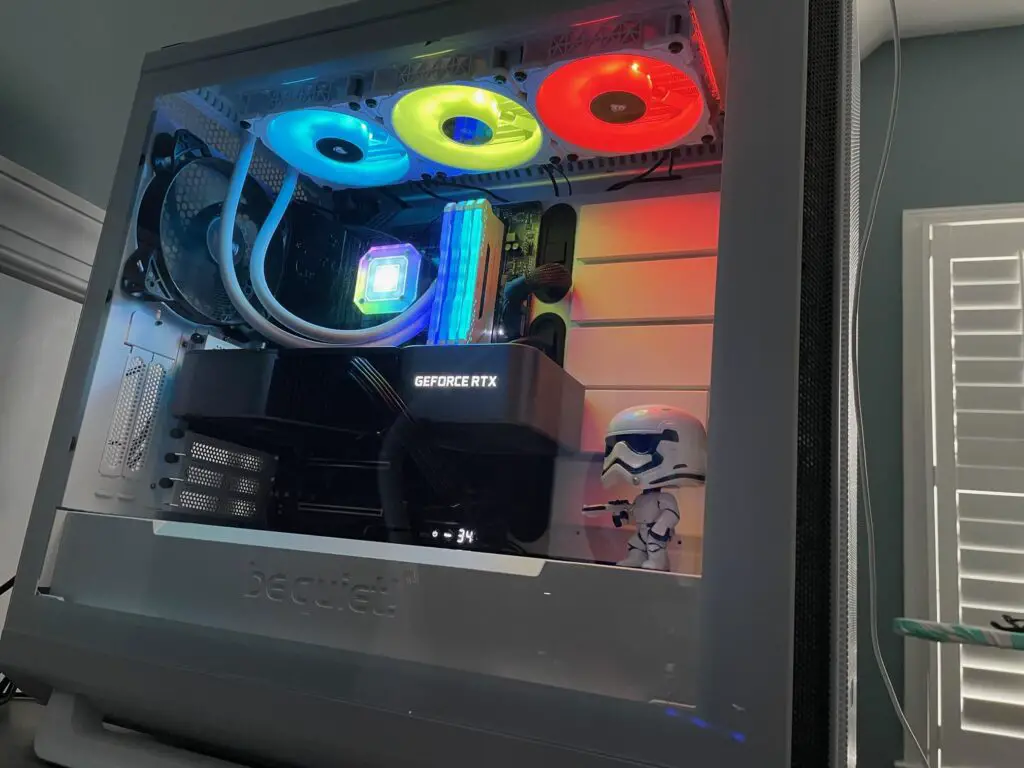Overclocking is the process of making your graphics card perform better by adjusting the clock speeds, voltage, and power limits on the card.
This can make your graphics card run faster or more efficiently.
The advantage of overclocking is that it can make your card work faster at a cost more consuming more power.
However, it can cause problems if done incorrectly. Does overclocking GPU reduce lifespan? Read to find out.
Does overclocking GPU reduce lifespan?
Overclocking should be done with care and precision. If you overclock your card too much, it will run much hotter, which reduces its lifespan and might damage your card.
The best way to get the most performance from your card is to configure it to run as close to its maximum potential as you can.
In most cases, that will mean that you’ll want to keep your clock speeds and voltages as close to stock as possible.
Keep in mind that each card is different, and you might not get the same results that we did when we tested different cards.
Does Overclocking Decrease GPU Lifespan?
Yes, overclocking can potentially damage your graphics card. If you overclock your card too much, it will run much hotter, which reduces its lifespan and might damage your card.
You should only overclock your card if you are comfortable with adjusting the clock speeds, voltage, and power limits on the card.
Can Overclocking Damage GPU?
No, overlocking does not kill GPUs. However, overclocking can potentially damage your graphics card if done incorrectly.
You should only overclock your card if you are comfortable with adjusting the clock speeds, voltage, and power limits on the card.
Does Overclocking Kill GPU?
No, overlocking does not kill GPUs. However, overclocking can potentially damage your graphics card if done incorrectly.
You should only overclock your card if you are comfortable with adjusting the clock speeds, voltage, and power limits on the card.
How Long Do Overclocked GPU Last?
This depends on how much you overclock your card and how well you take care of it. If you overclock your card too much, it will run much hotter, and shorten the lifespan a lot.
You should only overclock your card if you are comfortable with adjusting the clock speeds, voltage, and power limits on the card.
Is Overclocking GPU Safe In The Long Term?
This depends on how much you overclock your card and how well you take care of it. Overclocking can potentially damage your graphics if done incorrectly.
If you overclock your card too much, it will run much hotter, which reduces its lifespan and might damage your card.
However, if done correctly, overclocking can be a safe way to get more performance from your graphics card.
You should only overclock your card if you are comfortable with adjusting the clock speeds, voltage, and power limits on the card.

Final Thoughts
Overlocking can be a safe way to get more performance from your graphics card, but it should only be done if you are comfortable with adjusting the clock speeds, voltage, and power limits on the card.
Overclocking can potentially damage your graphics card if done incorrectly, so it is important to take caution when overclocking.
If you overclock your card too much, it will run much hotter, which reduces its lifespan and might damage your card.
Ultimately, whether or not overclocking is safe in the long term depends on how well you take care of your graphics card and how much you overclock it. Thanks for reading!
You Might Also Like
